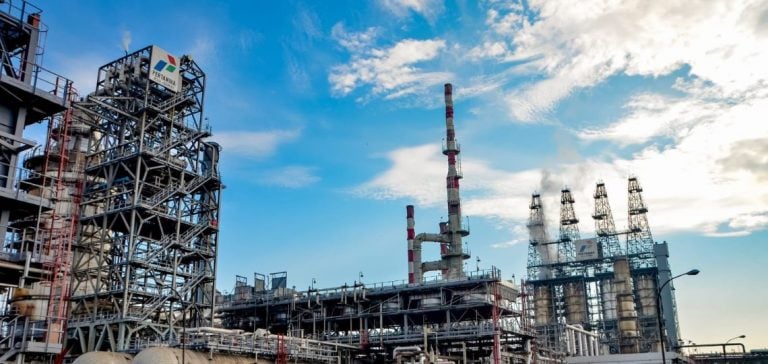Refiners in Thailand and Japan are expressing hope that Pertamina, the Indonesian state oil company, will continue to be interested in Russian crude from the Far East.
This dynamic could lead to a reduction in crude volumes from Southeast Asia, putting pressure on the light, sweet grades from Malaysia and Brunei, which are among the most expensive in the world.
Market players anticipate that this development could improve raw material supply economics for refiners in the region.
Pertamina, which regularly supplies its refineries with light and sweet crude grades from Malaysia, Brunei and Vietnam, recently caught the attention of Asian traders by launching a tender for Russian crude.
This move could change regional trade dynamics and influence price differentials for sweet crudes in Southeast Asia.
Industry sources report that Pertamina has issued a tender for the delivery of Russian crude to its Cilacap, Balikpapan or Balongan refineries, which could signal a significant shift in crude trade flows in the region.
A new dynamic in the crude oil market
On September 9, Pertamina closed its tender, and Singapore-based sources have indicated that the company may have acquired at least one aframax freighter of Sokol light sweet crude for delivery between late October and November.
Although Pertamina has not disclosed the results of this tender, market chatter suggests that this transaction could represent a turning point in the regional sweet crude market.
A raw materials and logistics manager at a South Korean refiner said:
“We have completely stopped buying Russian crude from the Far East since the imposition of international sanctions and the price cap on Russian oil trading. However, rumors indicate that Indonesia may have reached a sales agreement for a Sokol freighter, which could be a game-changer in the regional market.”
The question remains whether the Far East’s light, sweet crudes will regularly adapt to Pertamina’s refinery configuration.
Nevertheless, Indonesia’s growing interest in low-sulphur crude sourcing options, outside its usual sources in Southeast Asia and West Africa, could put pressure on short-term price differentials in the regional market.
Raw materials management sources at Japanese and Thai refiners point out that this development could have a significant impact on sweet crude prices.
Implications for crude oil grades in Southeast Asia
Light crude grades from Malaysia and Brunei are among the most expensive in the world, and any change in supply and demand could influence these prices.
Refiners who rely on benchmark grades such as Kimanis, Kikeh, Miri Light, Tapis, Champion and Seria Light could benefit from lower premiums if Pertamina turns more to Russian crude.
Valuations by Platts, an entity of S&P Global Commodity Insights, indicate that Malaysian Kimanis crude has been valued at an average premium of $8.68 per barrel to 2024-dated Brent, underlining the pressure on prices amid increased competition.
A commodity inventory manager at PTT, Thailand’s state-owned oil company, expressed optimism:
“If Pertamina can focus more on Russian crude, that would be good for us. Less competition for regional sweet crude cargoes could also lead to lower premiums.”
Thai customs data show that the country imported 72,594 barrels per day of light crude from Malaysia between January and July, an increase of 1.7% on the previous year.
A development to watch
Japan, as the fourth largest importer of crude in Asia, has also shown an interest in Brunei’s cargoes, having imported around 310,000 barrels of Champion crude in July.
Data from the Ministry of Economy, Trade and Industry reveal that the country purchased around 3,000 barrels per day of light crude from this supplier in the first seven months of the year.
Japanese refiners, while remaining cautious, hope that Indonesia’s interest in Russian crude may also have a positive influence on their supply costs.
Recent developments on the Southeast Asian crude market underline the importance of continuous monitoring of supply trends and price dynamics.
Pertamina’s possible adoption of Russian crude could not only redefine trade relations in the region, but also have repercussions on refiners’ sourcing strategies in Asia.
Market players need to keep a close eye on these developments in order to adapt their commercial approaches and optimize their supply costs.






















